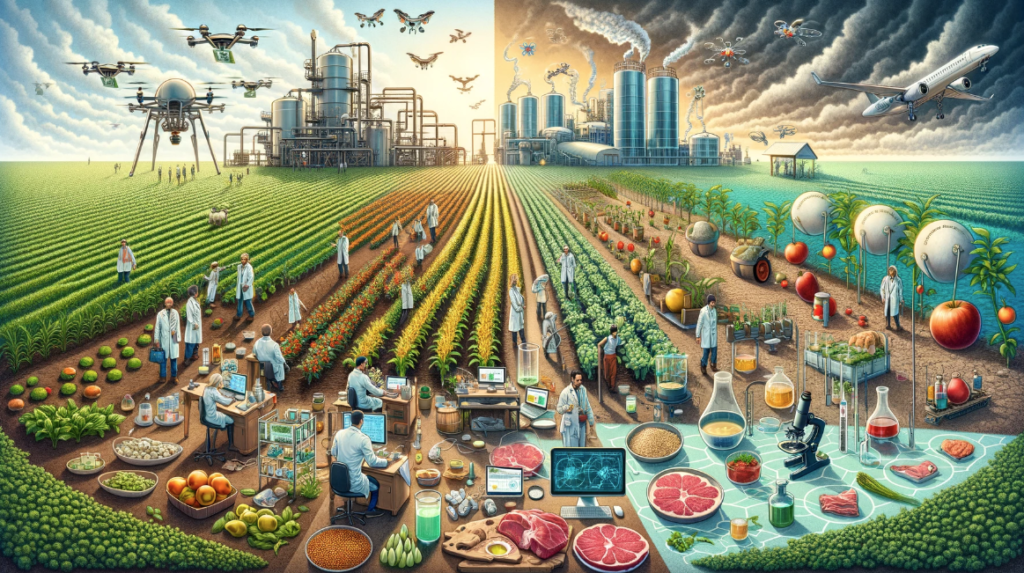Lesson 47.
The Future of Food: Biotechnology and GMOs (食の未来:バイオテクノロジーと遺伝子組換え)

▮ Explanatory Text:
The future of food is being shaped by advances in biotechnology, including the development and use of genetically modified organisms (GMOs). These technologies offer the potential to increase food production, enhance nutritional value, and reduce the environmental impact of agriculture by creating crops that are more resistant to pests, diseases, and changing climate conditions. However, the use of GMOs in agriculture also raises important ethical, health, and environmental concerns. These include questions about the long-term safety of GMO foods for human consumption, the impact on biodiversity, and the potential for increased pesticide use. This topic explores the scientific, ethical, and social dimensions of biotechnology and GMOs in the context of global food security, sustainability, and consumer choice.
▮ Common Phrases:
1. Genetically modified crops can…
2. The debate over GMO safety revolves around…
3. Biotechnology in agriculture aims to…
4. Ethical considerations of GMOs include…
5. Consumer attitudes towards GMO foods vary due to…
▮ Example Sentences:
1. Genetically modified crops can yield more produce with fewer inputs, such as water and fertilizers.
2. The debate over GMO safety revolves around concerns for human health and environmental impact.
3. Biotechnology in agriculture aims to address challenges such as nutrient deficiencies and crop resilience to stressors.
4. Ethical considerations of GMOs include issues of patenting life forms and the rights of farmers.
5. Consumer attitudes towards GMO foods vary due to factors like environmental concerns and food labeling.
▮ Questions:
1. What are the potential benefits and risks associated with the use of GMOs in agriculture?
This question encourages learners to explore both sides of the GMO debate, considering the advantages for food security and potential drawbacks.
2. How does biotechnology address global challenges such as climate change and food scarcity?
Participants discuss the role of biotechnology in creating resilient food systems that can adapt to changing environmental conditions.
3. What ethical issues arise from the development and use of GMOs, and how are they being addressed?
This prompts a discussion on the ethical dimensions of GMO use, including intellectual property rights and access to technology.
4.&5. How do consumer perceptions of GMOs influence food choices and agricultural policies?
Learners examine the impact of public opinion on GMO acceptance and the implications for policy and market dynamics.
Discuss the role of regulation and safety assessments in ensuring the responsible use of biotechnology in the food supply.
This question invites learners to reflect on the importance of regulatory frameworks in maintaining food safety and public trust in biotechnology.
▮ Discussion Instructions:
Choose a specific aspect of biotechnology or a GMO product that interests you, such as a genetically modified crop designed to combat vitamin deficiencies or withstand drought conditions. Discuss its development, potential benefits, and the controversies or challenges it faces. Reflect on how this technology represents broader trends in the future of food, considering sustainability, health, and ethical considerations.







